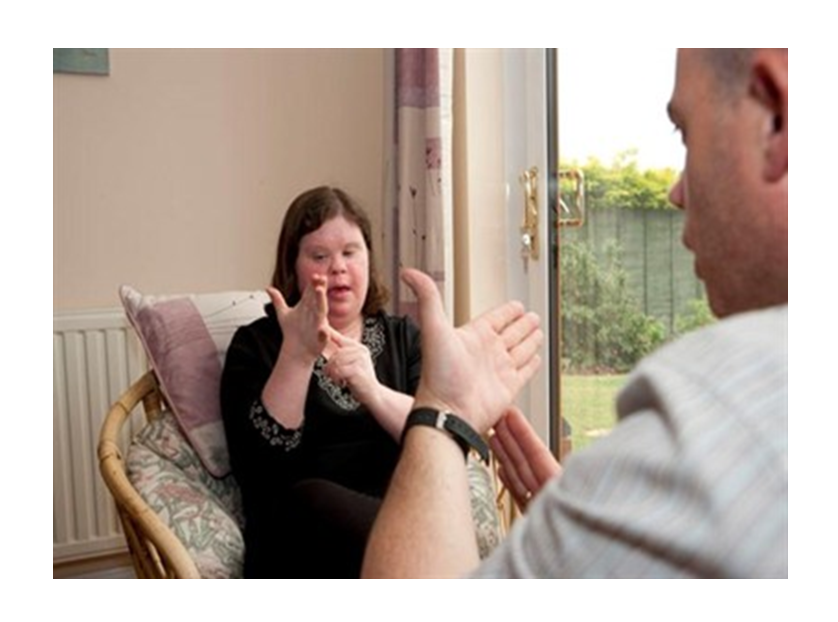All Behavior is Communication
Some people with disabilities have communication difficulties (such as being unable to talk or understand spoken language) that get in the way of expressing their needs and feelings in usual ways (See Section IV). This may lead to expressing those needs by using behaviors that appear unusual or disturbing to others. In the past, people who had difficult behaviors were considered in need of institutionalization or more restrictive environments until they learned behaviors that “showed” that they were "ready" for life in the community. This has proven to be WRONG. Current research shows that giving someone choice and control over their own life often minimizes challenging behaviors, which is why using a person-centered approach is one of the foundations of PBS. Teaching positive behavior in someone’s home, work, or other community setting is a better way to help him/her learn ways to communicate that others will understand.

In order to be successful with behavioral supports, staff must treat people with dignity and respect. Support staff must view behavior as a way for the person to control and direct his or her own life. If the desire for personal choice and control is not respected, the result may be someone has learned negative behaviors in order to gain some control. If this has gone on for a long time, it can be very challenging for staff and others who live and work around the person.
People (with or without developmental disabilities) generally do not behave their best when they are feeling pain or discomfort. A person who is hungry, thirsty, or tired may act in a negative way to express these feelings. A person who is worried about their safety and not sure what’s going to happen next may use difficult behaviors to express fear or anxiety. Some problem behaviors are a result from the side effects of medications. Others result from unhappiness, which may be due to missing family or friends, the absence of a favorite person, dislike of work, or an argument with a housemate or coworker. For some, simply providing a few minutes of individual focused attention may eliminate a need for attention from staff. Reasons for behavior are as unique as individuals. If we are to support people in successfully reducing challenging behaviors, we must first do our best to know each person and what is happening in their lives.